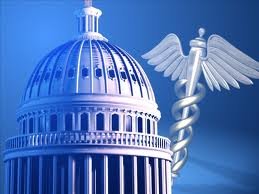January 20, 2014
With Obamacare now in what appears to be a relatively steady groove, many are wondering whether or not they will qualify for government healthcare subsidies. Regardless of whether you love or loathe the idea of healthcare reform (we have our own opinions, too) it looks like it's here to stay. If you're in a position to benefit from it, there are a few things you'll need to know, and knowing can end up saving you more time and worry than you might imagine.
Ultimately it comes down to two main factors, employment status and income. Since each person's situation is in many ways unique, let's review the three main categories that determine the amount of health insurance dollars you may be entitled to under the Affordable Care Act.
If You're Currently Employed
 Ironically, those who currently hold full time jobs have been put in the most precarious healthcare scenarios. If you are working, the first thing to consider is whether or not your company offers a traditional group plan. If they do, and you're already covered, then there's not a lot of options with regard to applying for a health insurance tax credit. When you opt-in to your company's plan, you're essentially excluded from receiving additional money from the government.
Ironically, those who currently hold full time jobs have been put in the most precarious healthcare scenarios. If you are working, the first thing to consider is whether or not your company offers a traditional group plan. If they do, and you're already covered, then there's not a lot of options with regard to applying for a health insurance tax credit. When you opt-in to your company's plan, you're essentially excluded from receiving additional money from the government.
However, if your employer does not offer a group plan, or has dissolved their previous plan and you found yourself uninsured, then you definitely have the option of applying for a subsidy. This would also apply to those who are working part time, or earning an income which meets the minimum requirements under the defined poverty guidelines.
If You're Currently Unemployed
Those who are not working for whatever reason, be it a layoff, having been fired, or on disability, there's a good chance that you'll be eligible for Medicaid coverage. Under this option, it is likely that you will be able to receive free health insurance, or coverage that is significantly discounted. The fastest and most accurate way to confirm this is to contact a qualified health insurance agent or broker in your area.
It's important to not confuse unemployment and Medicaid qualifications, as they're really two completely separate issues. Unlike unemployment, you will not be turned down for having quit your job. In the eyes of Uncle Sam's new healthcare policy, unemployed is unemployed, period.
If You're Self-Employed
 Self-employed individuals, and their respective families and dependents, can fall on either side of the spectrum. If you have a reportable income over the qualifying minimum, things can get a bit complicated. In contrast if you've just started a new business or do not have a steady stream of income, there's a good chance that you'll be able to receive a subsidy towards your healthcare costs. This is one situation where we strongly recommend working with a broker. Most do not charge a consultation fee, and it can save you a tremendous amount of stress, number crunching and time spent on the healthcare.gov website.
Self-employed individuals, and their respective families and dependents, can fall on either side of the spectrum. If you have a reportable income over the qualifying minimum, things can get a bit complicated. In contrast if you've just started a new business or do not have a steady stream of income, there's a good chance that you'll be able to receive a subsidy towards your healthcare costs. This is one situation where we strongly recommend working with a broker. Most do not charge a consultation fee, and it can save you a tremendous amount of stress, number crunching and time spent on the healthcare.gov website.
Free Assistance with Your 2014 IL Health Insurance
Our agency has spent unfathomable amounts of time preparing for changes that Obamacare would bring, and we can say with total confidence that we know this new system inside and out. If you're in Illinois or the Chicago area and are still confused over which route to go, we can help. Our staff of licensed agents have been extensively trained on healthcare reform, and we offer free assistance with subsidy applications, new plans, self-employed health insurance options and more.
Give Premier a call today at 800-369-0287 to find out how much money you are eligible, or simply get answers to your questions from a company who genuinely cares and knows how to help. You can also e-mail us directly through our secure website.
